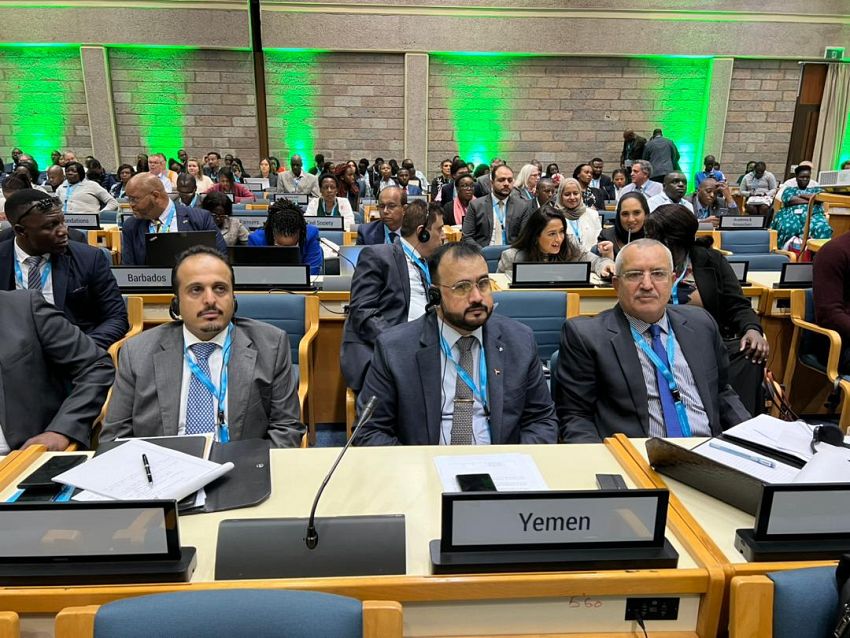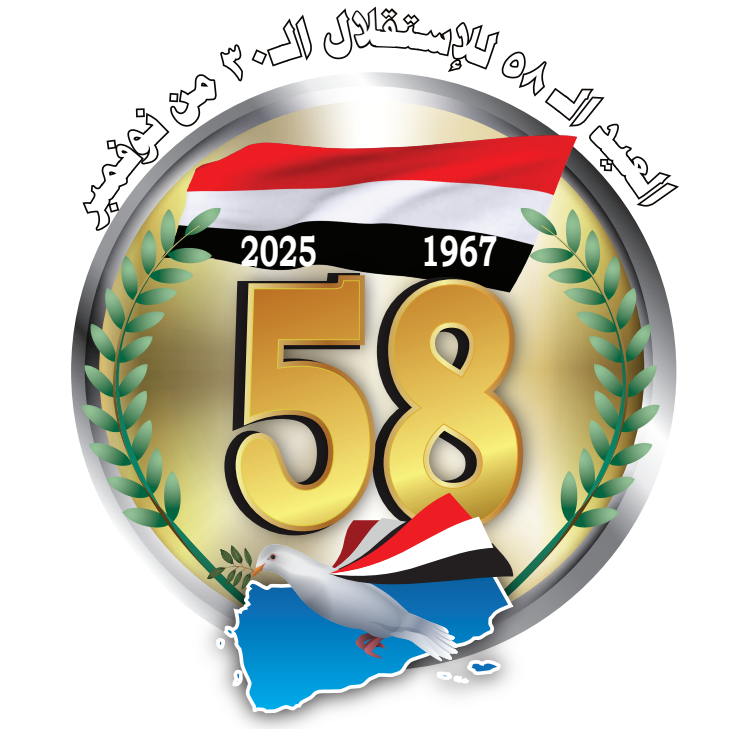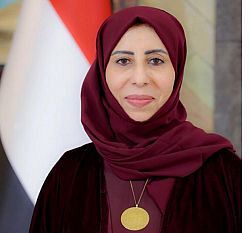
Minister of Planning Discusses Resumption of Article IV Consultations with IMF
Minister of Planning and International Cooperation Dr. Afrah al-Zouba held Thursday a virtual meeting with the Head of the International Monetary Fund (IMF) Mission to Yemen, Esther Perez Ruiz.
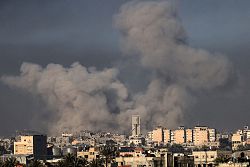
Casualty Toll from Israeli Offensive on Gaza Rises to 72,070 Martyrs, 171,738 Injured
The casualty toll from the Israeli occupation’s offensive on the Gaza Strip since October 7, 2023, has risen to 72,070 martyrs and 171,738 injured, according to the Ministry of Health in Gaza.
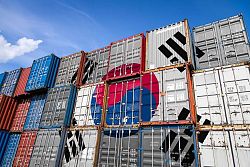
Korea large companies' exports rise 10 percent
Large companies' exports in South Korea rose approximately 10 percent year-on-year in the fourth quarter of last year, driven by increased global demand for semiconductors.

Saudi League: Al-Nassr, Al-Ettifaq and Neom Secure Victories Over Al-Ittihad, Damac and Al-Riyadh
Al-Nassr defeated its guest Al-Ittihad 2–0 in the match that brought them together at Al-Awwal Park Stadium in Riyadh, as part of the 21st round of the Saudi Professional League.
Last Update: ،
2026/02/27
Time
05:48:28
Latest News:
 Minister of Defense Stresses Activating Oversight, Inspection, Strengthening Intelligence Work
Minister of Defense Stresses Activating Oversight, Inspection, Strengthening Intelligence Work
 Minister of Transport meets with shipping company agents, Director of UN Envoy Office
Minister of Transport meets with shipping company agents, Director of UN Envoy Office
 Minister of Higher Education Discusses with UNESCO Enhancing Cooperation, Developing Higher Education ..
Minister of Higher Education Discusses with UNESCO Enhancing Cooperation, Developing Higher Education ..
 Supreme Committee for Budgets Approves Draft Budget for 2026
Supreme Committee for Budgets Approves Draft Budget for 2026
 Minister Al-Sharjabi Discusses Water and Environment Projects with UNDP
Minister Al-Sharjabi Discusses Water and Environment Projects with UNDP
Latest News:
 Minister of Defense Stresses Activating Oversight, Inspection, Strengthening Intelligence Work
Minister of Defense Stresses Activating Oversight, Inspection, Strengthening Intelligence Work
 Minister of Transport meets with shipping company agents, Director of UN Envoy Office
Minister of Transport meets with shipping company agents, Director of UN Envoy Office
 Minister of Higher Education Discusses with UNESCO Enhancing Cooperation, Developing Higher Education ..
Minister of Higher Education Discusses with UNESCO Enhancing Cooperation, Developing Higher Education ..
 Supreme Committee for Budgets Approves Draft Budget for 2026
Supreme Committee for Budgets Approves Draft Budget for 2026
 Minister Al-Sharjabi Discusses Water and Environment Projects with UNDP
Minister Al-Sharjabi Discusses Water and Environment Projects with UNDP
Minister Al-Hareezy reviews Yemen's challenges in the field of urban housing during UN meeting in Kenya
[06/06/2023 02:54]
Nairobi – Saba
Minister of Public Works and Roads, Eng. Salem Al-Hareezy, reviewed the challenges facing Yemen in the field of urban housing, which have been exacerbated by the crises the country is going through due to the economic deterioration and the collapse of service institutions, due to the war sparked by the Houthi militia.
This came during his speech delivered today at the meetings of the second session of the United Nations Assembly for Human Settlements, held in the Kenyan capital, Nairobi, from 5 to 9 June. Minister Al-Hareezy said, "The war has caused the displacement of thousands of citizens, most of them women and children, from their homes, and they are now living in very difficult conditions at the level of housing, health and food security.
The war has also caused damage and destruction to government institutions, infrastructure and services, especially electricity, water, the road network, and citizens' homes."
. The Minister of Works touched on government efforts to achieve comprehensive development goals, despite the difficult economic conditions, stressing the importance of participating in this session to gain expertise and benefit from countries' experiences in the field of capacity building and urban infrastructure development.
Minister of Public Works and Roads, Eng. Salem Al-Hareezy, reviewed the challenges facing Yemen in the field of urban housing, which have been exacerbated by the crises the country is going through due to the economic deterioration and the collapse of service institutions, due to the war sparked by the Houthi militia.
This came during his speech delivered today at the meetings of the second session of the United Nations Assembly for Human Settlements, held in the Kenyan capital, Nairobi, from 5 to 9 June. Minister Al-Hareezy said, "The war has caused the displacement of thousands of citizens, most of them women and children, from their homes, and they are now living in very difficult conditions at the level of housing, health and food security.
The war has also caused damage and destruction to government institutions, infrastructure and services, especially electricity, water, the road network, and citizens' homes."
. The Minister of Works touched on government efforts to achieve comprehensive development goals, despite the difficult economic conditions, stressing the importance of participating in this session to gain expertise and benefit from countries' experiences in the field of capacity building and urban infrastructure development.
Key words:
infrastructure - comprehensive - participating - deterioration - displacement - institutions - experiences - electricity - Settlements - destruction - Minister of Planning Discusses Resumption of Article IV Consultations with IMF
Minister of Planning Discusses Resumption of Article IV Consultations with IMF Minister of Defense Stresses Activating Oversight, Inspection, Strengthening Intelligence Work
Minister of Defense Stresses Activating Oversight, Inspection, Strengthening Intelligence Work Minister of Transport meets with shipping company agents, Director of UN Envoy Office
Minister of Transport meets with shipping company agents, Director of UN Envoy Office Minister of Higher Education Discusses with UNESCO Enhancing Cooperation, Developing Higher Education
Minister of Higher Education Discusses with UNESCO Enhancing Cooperation, Developing Higher Education  Supreme Committee for Budgets Approves Draft Budget for 2026
Supreme Committee for Budgets Approves Draft Budget for 2026  Minister Al-Sharjabi Discusses Water and Environment Projects with UNDP
Minister Al-Sharjabi Discusses Water and Environment Projects with UNDP PM Orders Immediate Payment of Salaries for Civil Servants, Military Personnel
PM Orders Immediate Payment of Salaries for Civil Servants, Military Personnel President Al-Alimi: New Saudi Support is Additional Message of Promising Strategic Partnership
President Al-Alimi: New Saudi Support is Additional Message of Promising Strategic Partnership Prime Minister Expresses Deep Appreciation for New Saudi Support
Prime Minister Expresses Deep Appreciation for New Saudi Support Prime Minister receives message from IMF Managing Director
Prime Minister receives message from IMF Managing Director 